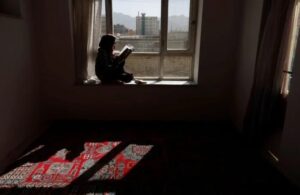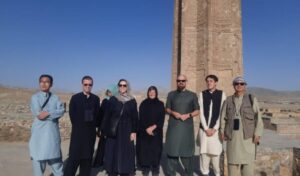KABUL (SW) – The right to choose for individuals in a society is one of the basic rights. Psychologically, choice is a process that involves judging the pros and cons of various options and selecting one or more of them. Freedom of choice describes an individual’s opportunity and independence to perform an action selected from at least two available options without being constrained by others.
Statement
The right to choose in a society refers to a set of rights for humans that everyone should have because they are human. But, the right to choose as a human privilege for women in Afghanistan faces various challenges and limitations. Accordingly, the main purpose in this research is to investigate the extent to which women have the right to choose. In other words, in this research, Salam Watandar has tried to explore the issue of how many women have the right to choose, and in which areas this right is granted or not.
Research background
After the establishment of the de-facto government and the political upheavals that caused extensive changes in the social life of women, less attention has been paid to women’s rights, and has been limited in this country. Therefore, this is the first field research that is conducted on the extent to which women have the right to choose.
The main research inquiries
- How much do women in Afghanistan have the right to choose?
- In which matters of life are women deprived of the right to choose?
Research objectives
- Examining the legal status of women;
- Providing statistics of women who do not have the right to choose, as well as women who have a limited right to choose;
- Reflecting what women can choose, but they have been denied that choice.
Research time
The work on this research started on January 15, 2024 and ended on March 15, 2024.
Research challenges
It is difficult and time-consuming to conduct any research related to women in the current conditions of Afghanistan, where more than 60 restrictions have been imposed on women in various sectors. Below, the challenges that Salam Watandar has faced during carrying out this research are pointed out.
Women in Afghanistan have been deprived of education, work and recreation due to the imposed restrictions, and they have to stay at home; This has made it difficult to reach women for conversation.
The established traditions in the society on family matters oblige the women who are at home to accept the duties that their rights are ignored. The participants in this survey used to self-censor because they were worried about their families’ feedback.
The surveyed women did not fully understand the right to choose and that they can choose by themselves, and this caused them to get confused in choosing the questionnaire items.
Research variables
Right, choice, women, education, marriage, recreation and traditions are among the variables of this research.
Summary
The findings of the Salam Watandar survey from the analysis of the conversations with 530 girls and women in six provinces show that 61.1% of the girls and women participating in this survey do not have the right to choose in life matters, and 39.9% of the participants said that they only had the right to choose in some aspects of life.
The participants in this survey were in different age groups, the largest age group of which is women between 20 and 25 years old, which includes 49.2% of all women surveyed.
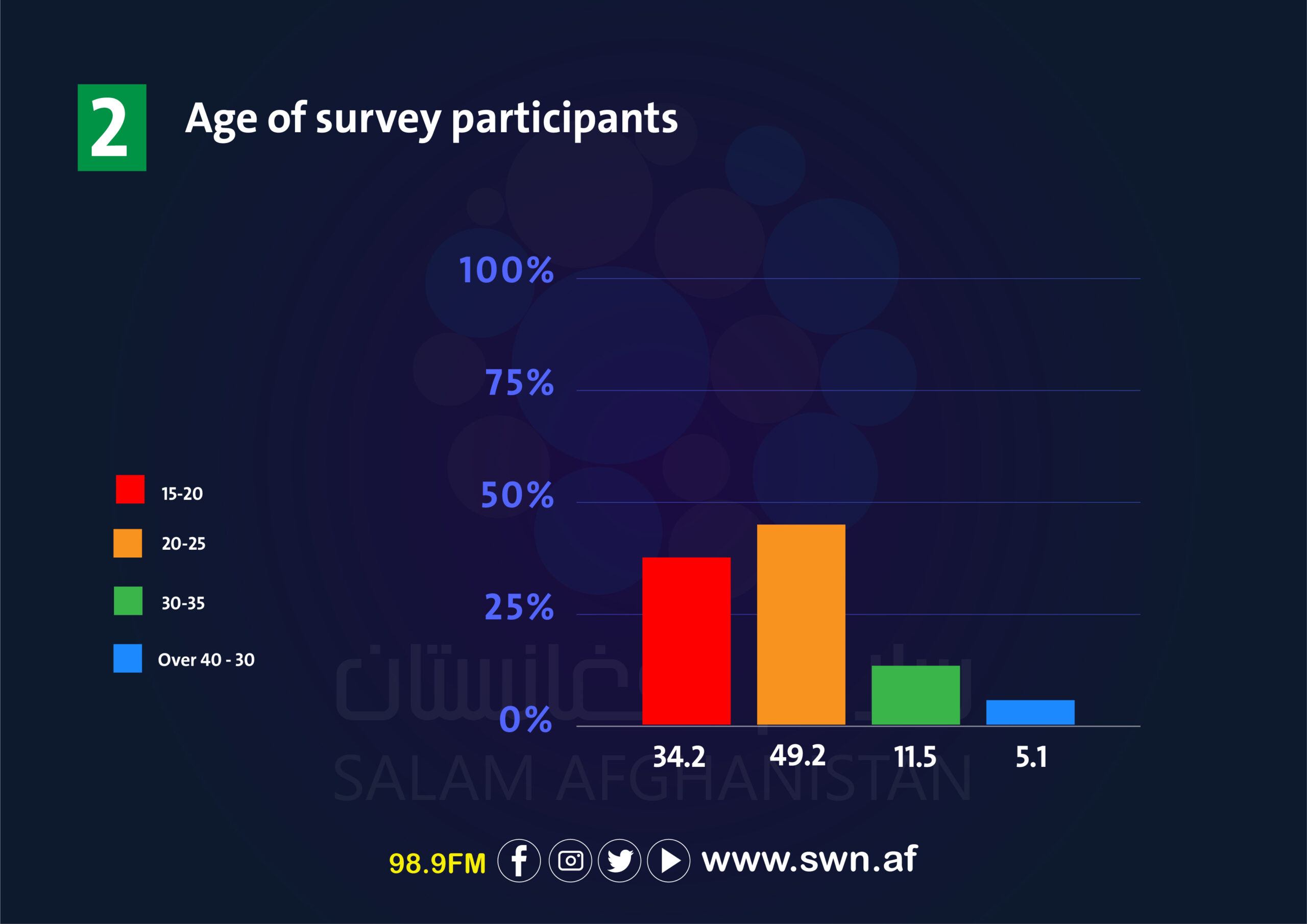
This survey was conducted in six provinces, where Kabul with 84% of participants had the highest number of participants and Faryab with 1.3 percent had the lowest number of participants.
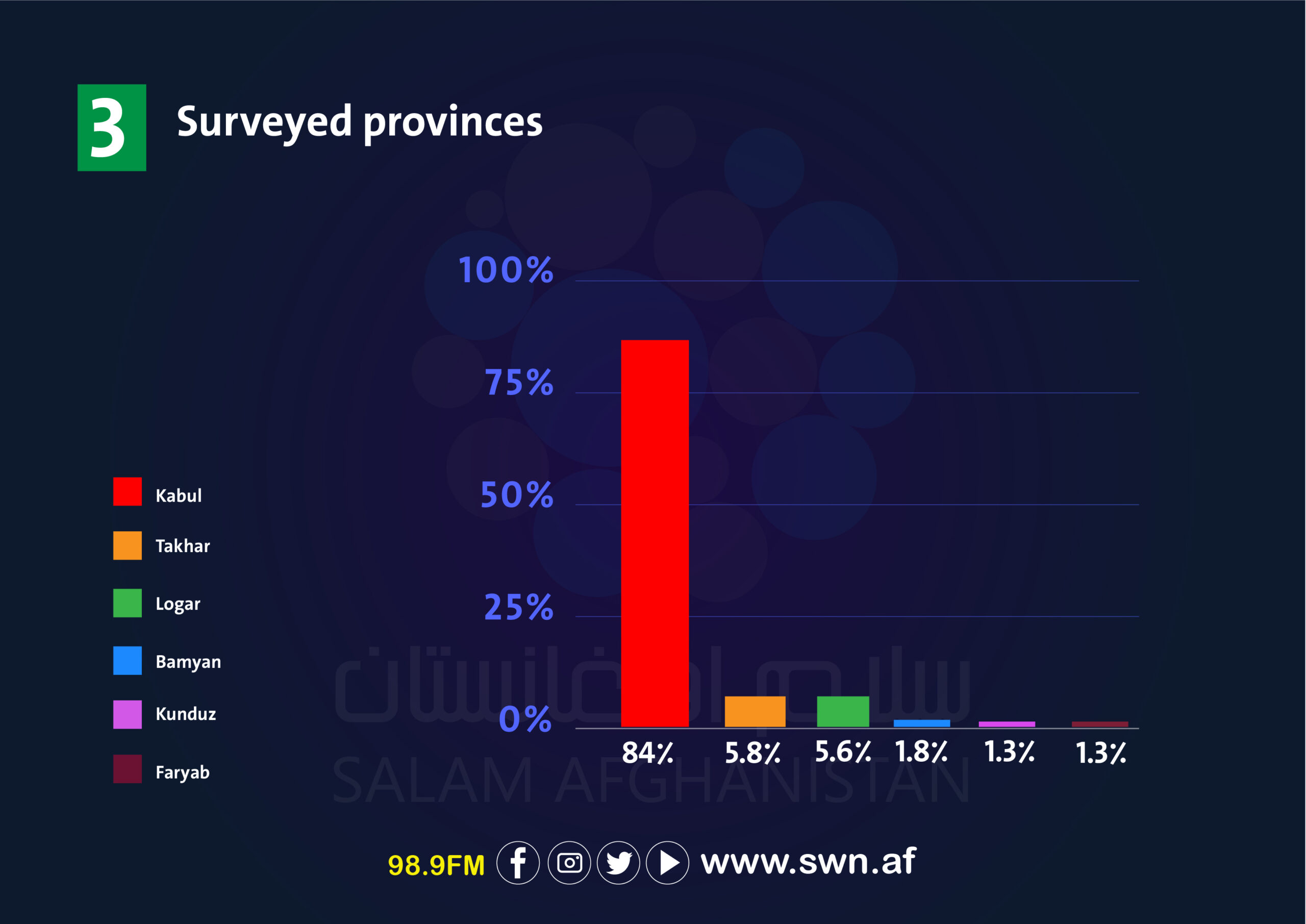
The Report
Salam Watandar’s findings from a survey of 530 girls and women in six provinces of Afghanistan show that 61.1 percent of these girls and women did not have the right to make any choice in various parts of their lives, and in most life matters such as education, choosing clothes, places of recreation and entertainment. Instead, family, life partner, father, brother and husband have decided for them.
Meanwhile, 38.9 percent of the surveyed women said that in some cases they had the right to express their opinion relatively and to some extent.
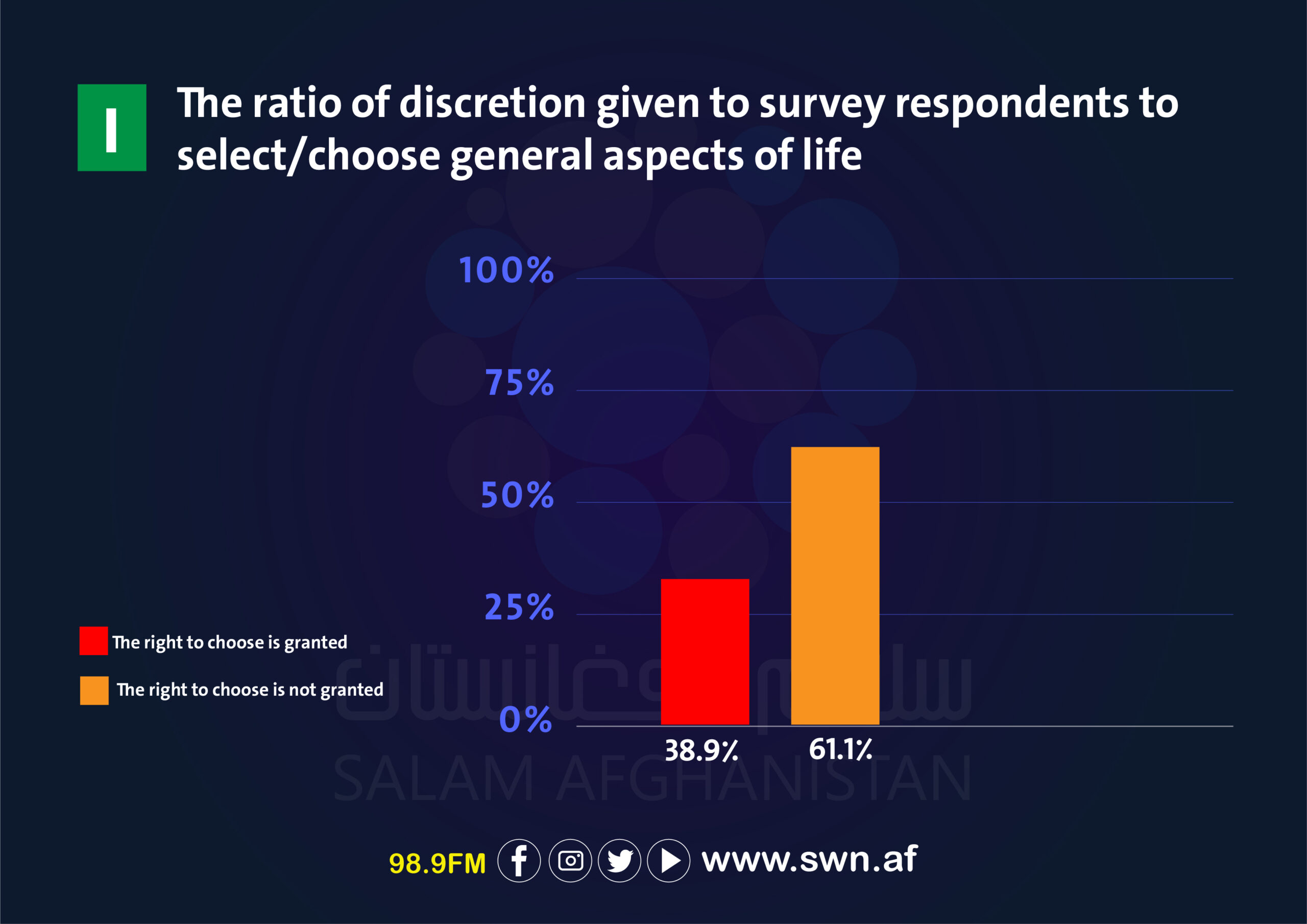
The findings of the Salam Watandar’s survey from the analysis of the conversations of 530 girls and women show that 56.9% of these girls and women said that they do not have a role in the decision making that take place in their homes on a daily basis or that their role is largely denied. Some 43.1% said that this right has been given to them.
Of these, 14.6% said that they have absolutely no role in daily choices at home; 42.3% said that most of their role in such matters is taken away from them, but on the other hand, 27.2% said that they participate in such choices and another 15.9% said that they fully have this role.
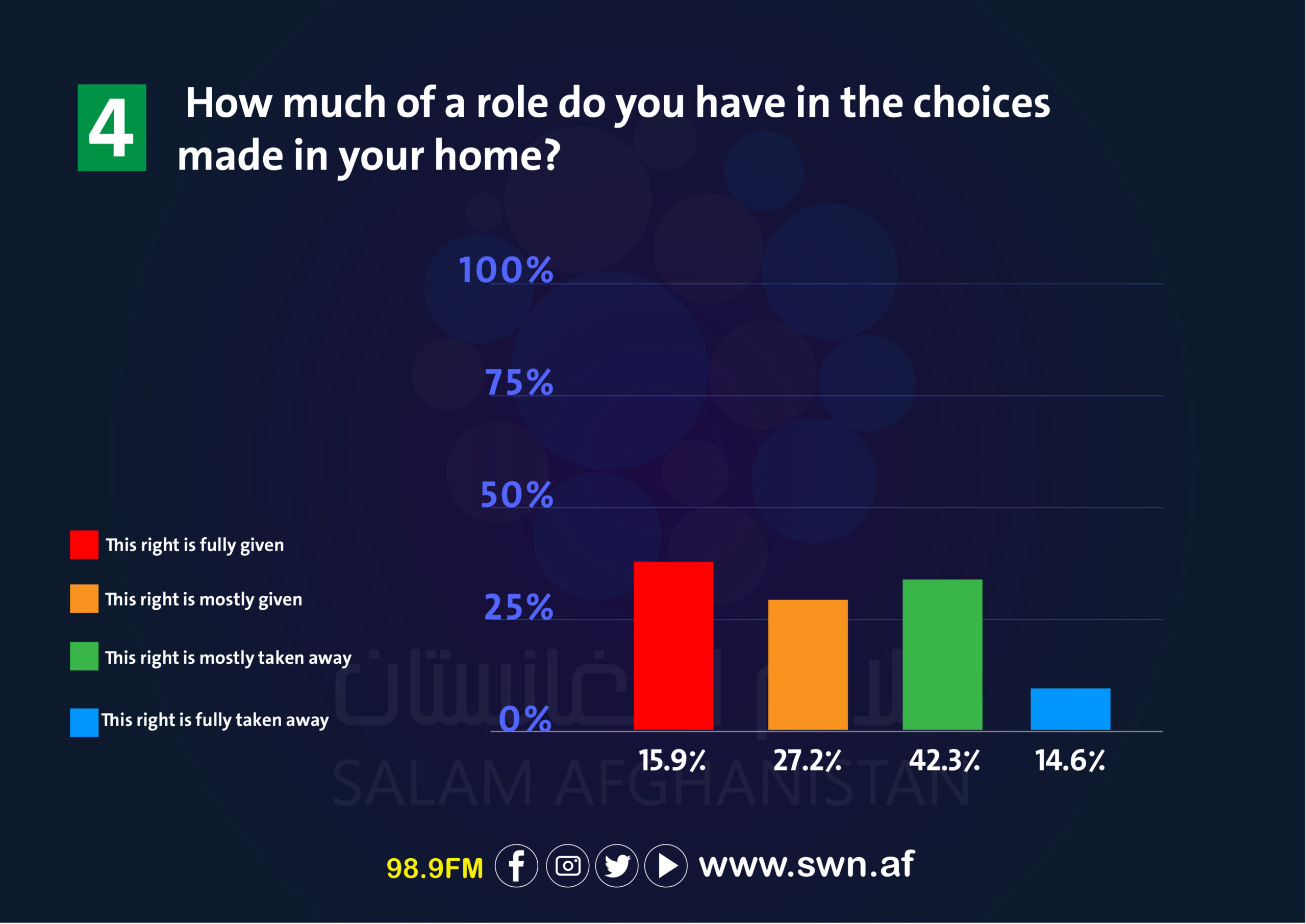
In this survey, the right to education of girls and women was also investigated, and 32.9% of the surveyed girls and women said that they were able to have the right to choose more about education and continuing education. 27.2% of these women said they have played a role in their right to education; 23.6% said that this right was taken away from them and 16.3% of the women participating in this survey were deprived of the right to choose in the education process.
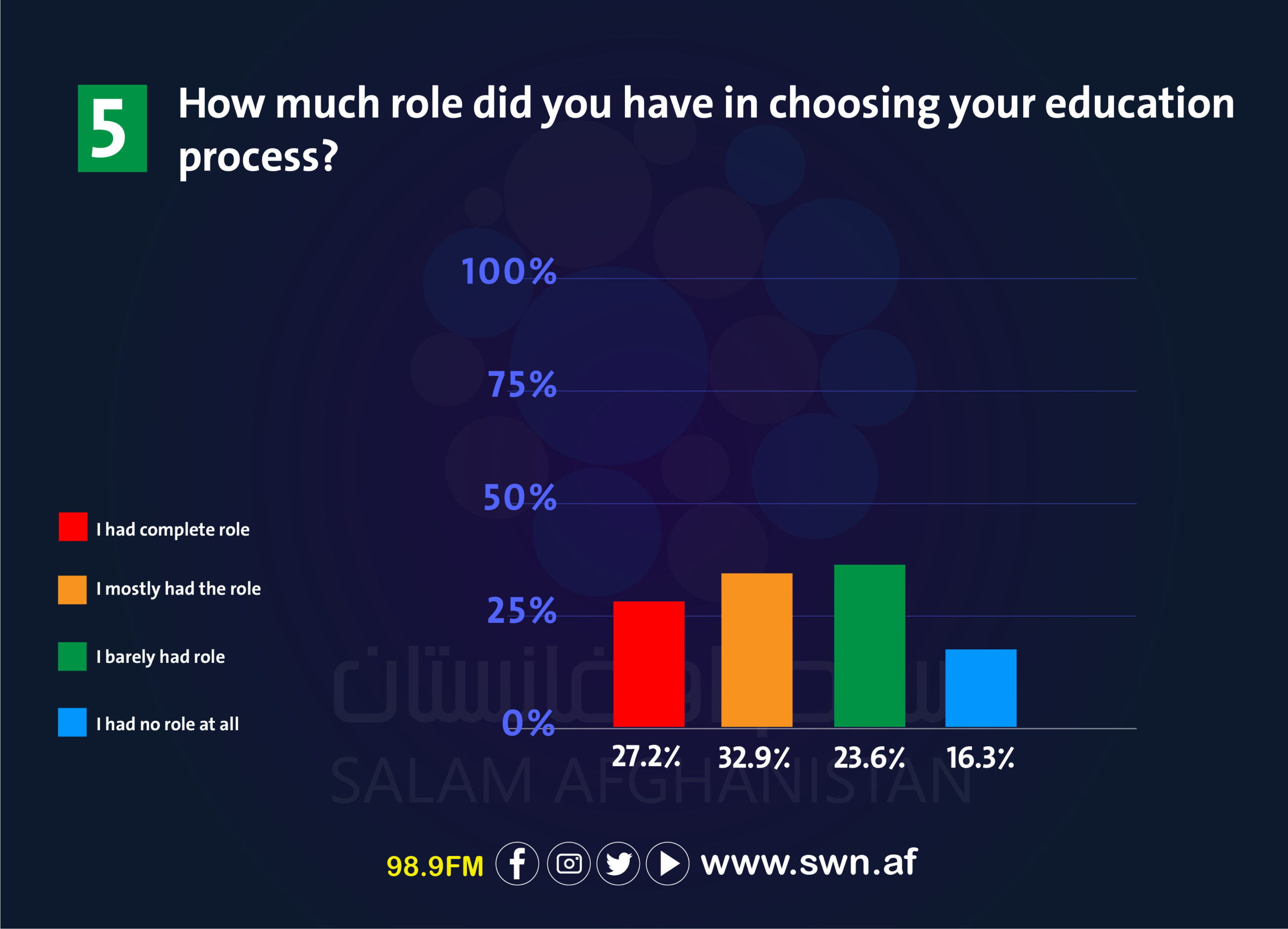
The results of this survey show that 11.2% of the participants have no right to choose their clothes. 29.9% of girls and women participating in this survey said that most of their clothes are chosen based on the discretion of others. 27.2% said that they can choose their own clothes more and another 31.8% said that this right has been given to them completely.
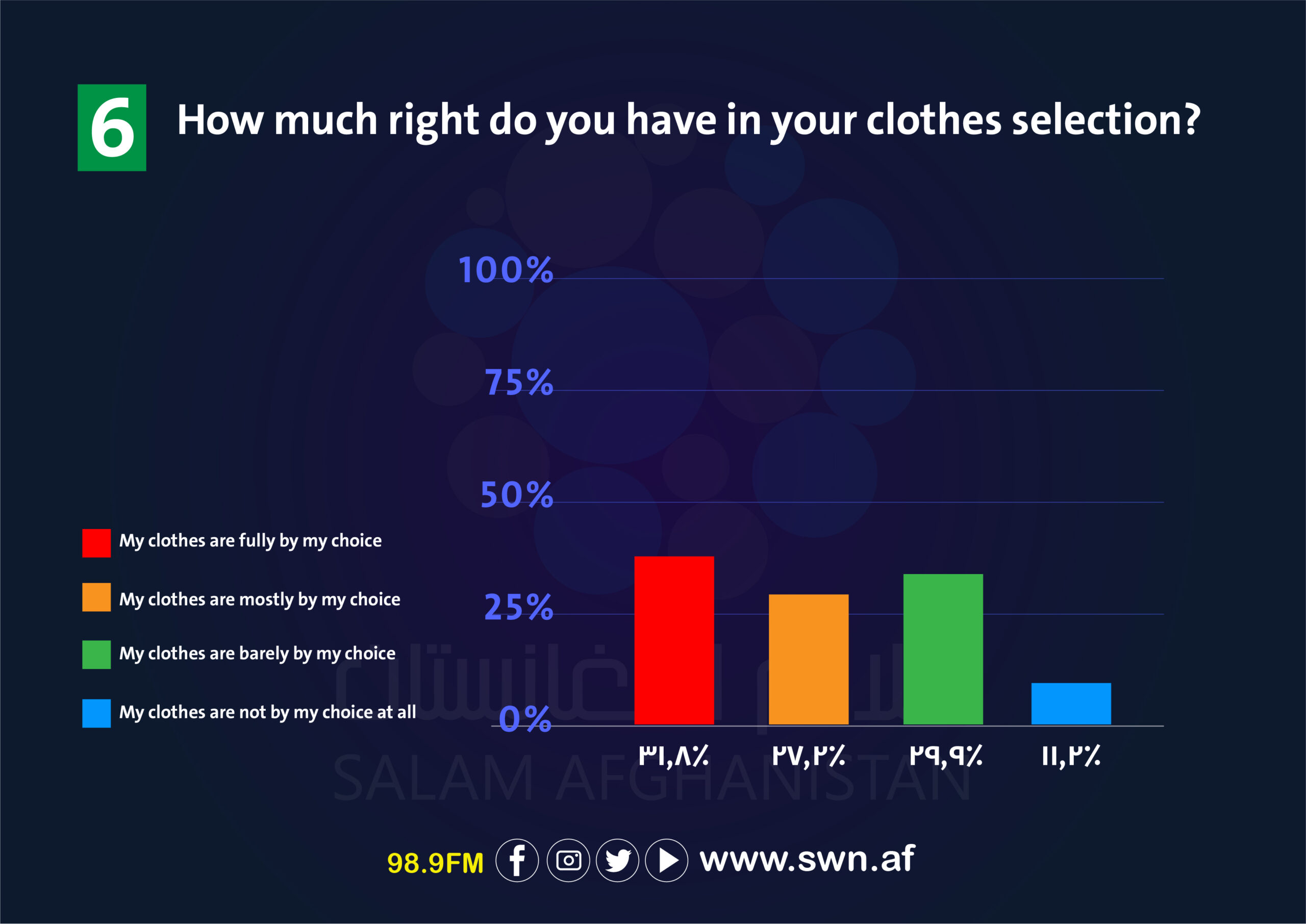
The daily activities of women have also been examined in this survey, and 12.3% said that they have absolutely no right to choose their daily activities. 35.5% said that in most cases this right is taken away from them; 32.1% said that they can participate in their daily activities and another 20% said that they can completely choose their daily activities by themselves.
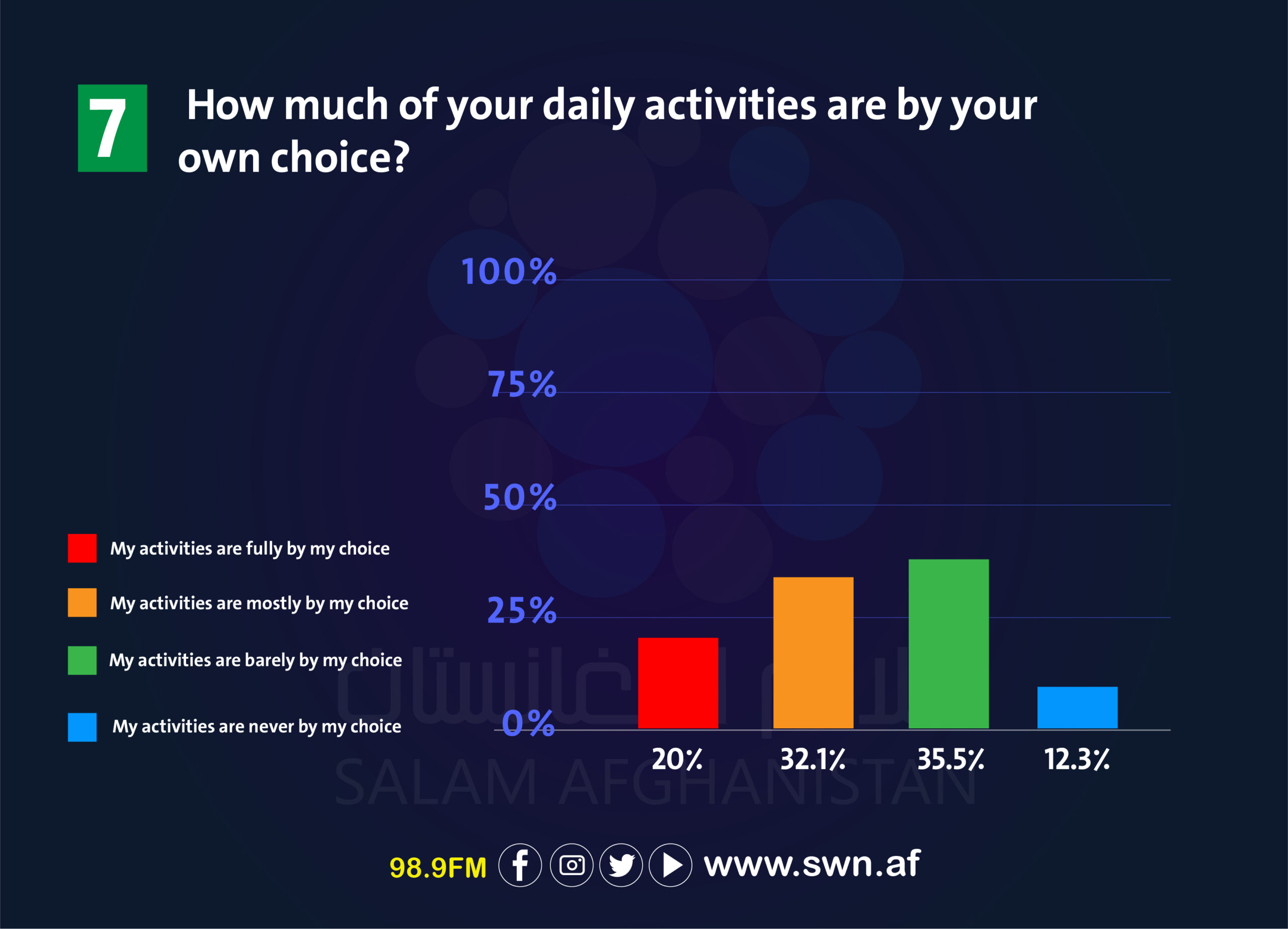
40.8% of the respondents of this survey said that they were not given any right in choosing the place to live and they had no role in determining where they live. 27.8% said that this right was taken away from them; 18.7% had a greater role in choosing the place to live and 12.7% of these women had the full right to choose their own place to live.
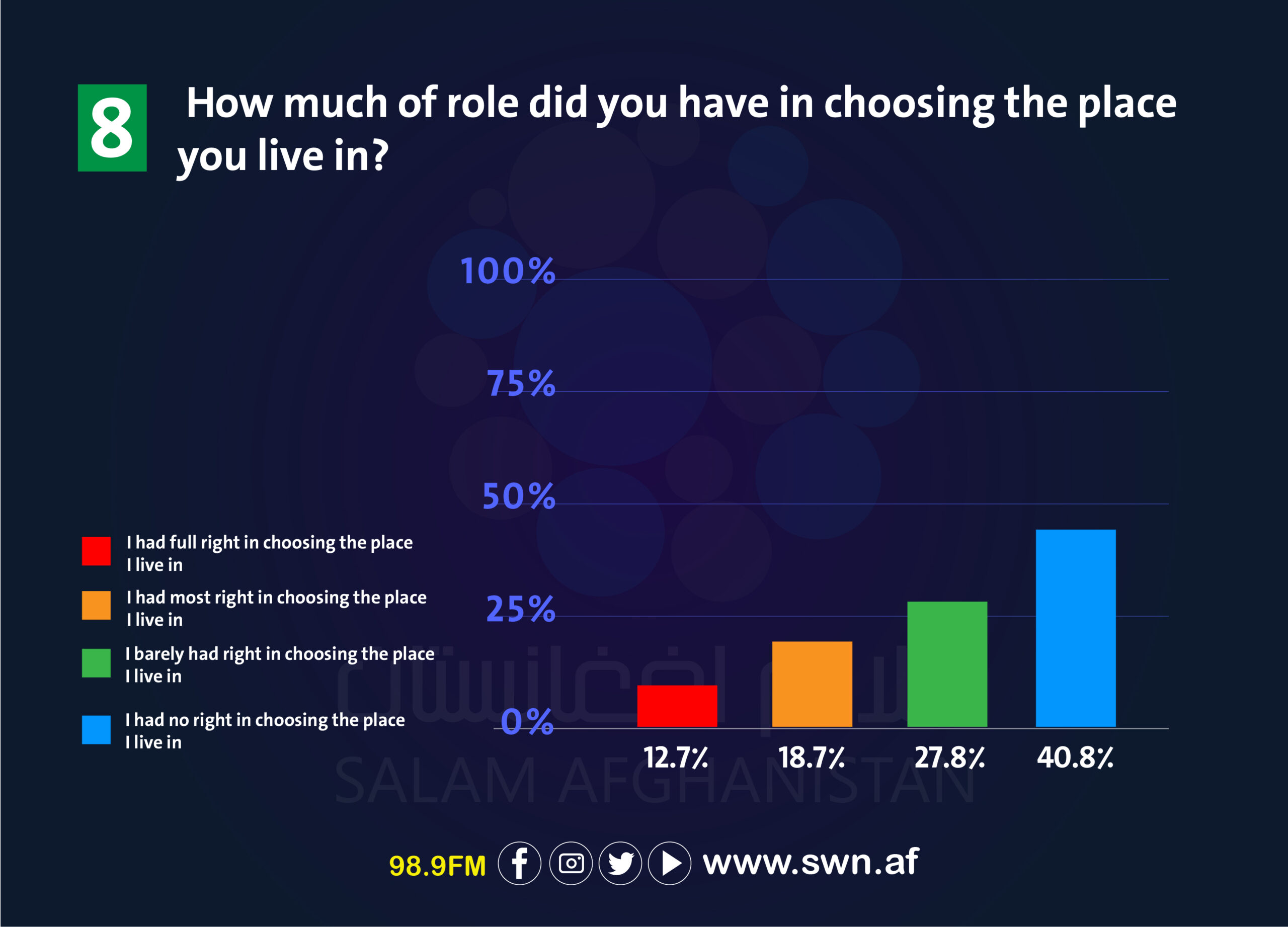
23.4% said that they have no right to choose recreation and daily entertainment. 37.8% said that this right is mostly taken away from them; 24.8% said that their entertainment is more of their own choice and another 14% said that they can completely choose their own entertainment.
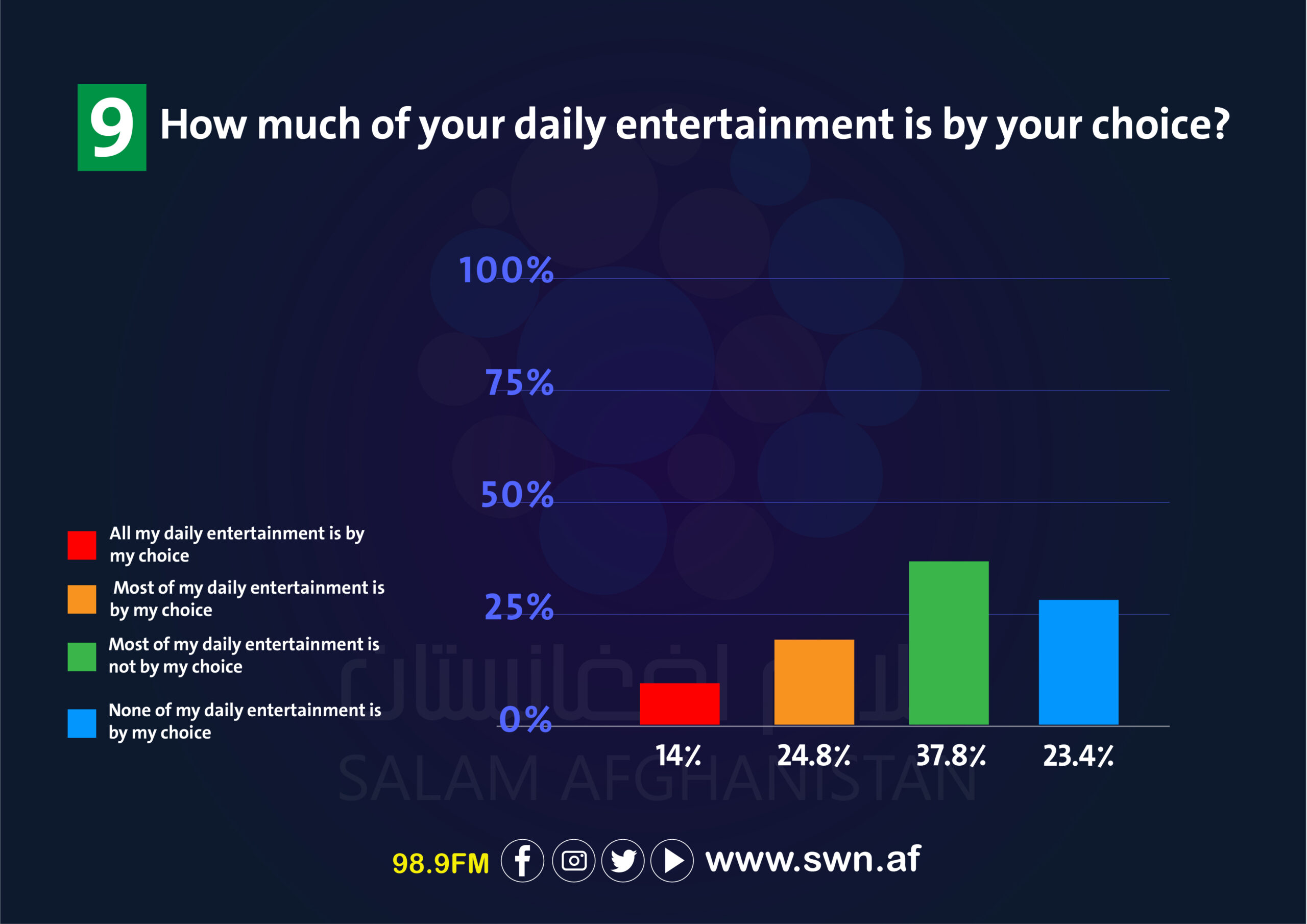
In this survey, women’s right to choose important family decisions has been investigated, and among these 530 women, 22.5% said that they have no role in such decisions. 40.6% said that most of this right was taken from them; 23.4% said that they are considered more and another 13.4% said that they can fully participate in important family decisions.
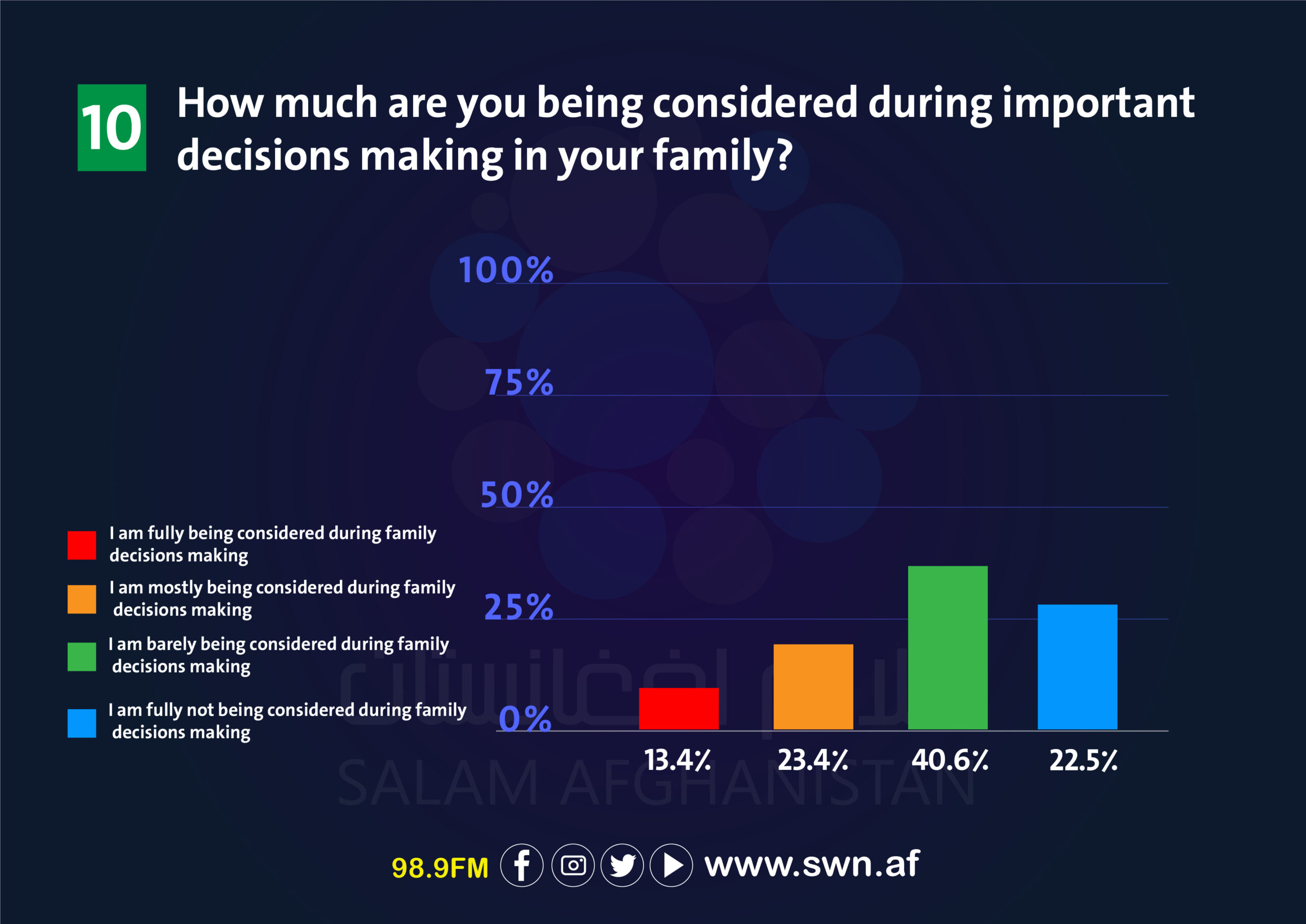
21.6 percent of the participants of this survey said that they had no role in choosing their life partner. 34.6% said that this right was denied to them; 23.1 percent said that most of this right was given to them and another 20.8% said that they chose their life partner themselves.
Recommendations
- Men and women should know that women as human beings have the right to choose in their lives.
- Women’s choice must be respected.
- Girls and women must have the right to choose in all matters of their lives, from clothing to education.
- The ruling traditions in the society that women do not have the right to choose must be removed over time.
- In this regard, the media, religious scholars and rulers of the country must consider plans.

